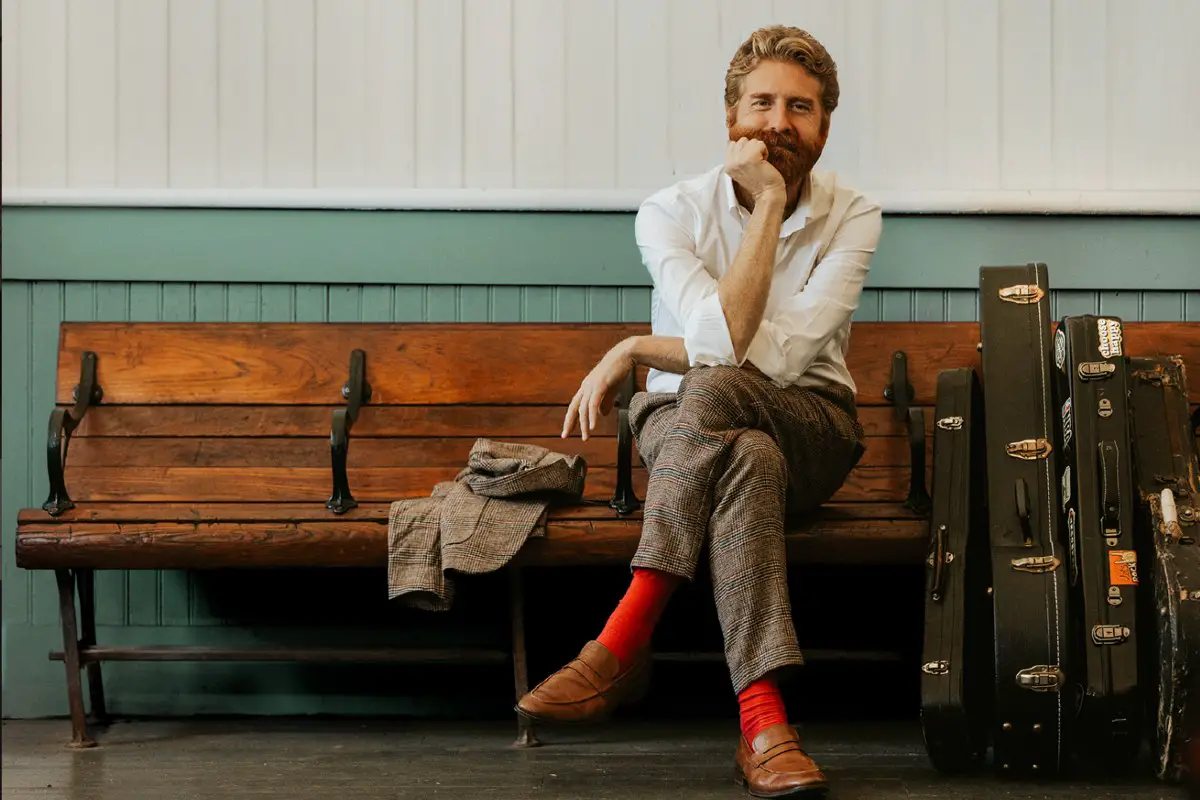
Sean Dietrich’s Over Yonder book is out. The novel, Dietrich’s fourth, is his way of bringing joy and light into a world that can often feel dark and dismal.
“I’ve always loved novels,” Dietrich tells Everything Nash. “I dropped out of school when I was in the seventh grade. My dad died when I was 11. I tried going back briefly, and then I just dropped out. I kept up with entertainment and my education. And the only way I knew how was by reading. I went to the library every week. And novels were super important to me because you can learn a lot by reading novels.”
Dietrich, billed as Sean of the South, has written a total of 20 books, but feels a special affinity for novels.
“I’ve always wanted to write fiction,” he explains. “But it really hit home with me when I was starting writing at all. As I watched people, and I was asking friends, I noticed that the world was kind of sad. People are sad.”
Dietrich realized that people were relying heavily on TV and the internet, which gave him the idea to begin writing novels as a way to spread a bit of cheer, if only for a little while.
“I thought if I write novels, perhaps I can say some of the things I want to say in a different form that people will enjoy,” Dietrich says. “So I started writing novels. This novel in particular is about a character that I really got into.”
View this post on Instagram
What Sean Dietrich Says About ‘Over Yonder’
Dietrich describes the main character, Woody Barker, as an “everyday guy who figures out a few things about his life that he did not know,” while also battling some health issues.
“It’s also about a young woman who discovers some things about her own self that she didn’t know,” Dietrich continues. “And somehow these two stories interweave.”
Dietrich goes on to say Over Yonder is about “found family,” which for Dietrich is especially important. Dietrich was not yet a teenager when his father committed suicide, changing everything for Dietrich and the rest of his family. Understandably lost amid his overwhelming grief, Dietrich found solace in others whom he could rely on in the years following his father’s death.
“The book is about found family, which all my books to some degree are about found family. ’cause I have such a splintered family myself. The people who have been incredibly formative in my life have been found family members.”
Sean Dietrich’s ‘Over Yonder’ Book Tour
Dietrich is currently on a book tour in support of Over Yonder, which includes a stop in Columbia, Tennessee on October 16. For Dietrich, it’s important to tell his story, especially in a personal, intimate setting. By his own admission, his life is not at all what he thought he would be doing, even if he is profoundly grateful at the providence that has unfolded over his life.
“I’ve been doing my one-man show all over,” Dietrich says. “I never set out to do it, and I never thought this would be anything I’m doing with my life. But over the last ten years, it has evolved from an evening of storytelling into an evening of audience participation. And really, all I aim to do wherever we visit is make everybody feel really, really, really warm and good, for as long as we’re together, even if it’s just an hour. And then we do a meet and greet afterward, and whoever wants to stay, I will. I will be the last one to leave the building. I’ll stay as long as they want me to, and hug everybody’s neck who has come. And so sometimes our meet and greets last for a long, long time, but I like it. I love it.”
Why Sean Dietrich Tells His Life Story
Growing up impoverished, with a father who took his own life at an already challenging time for Dietrich, he could have easily become bitter and hostile, closed off to the world. Instead, Dietrich boldly shares his story, determined to give purpose to his own pain.
“When we go through trauma, it’s a wound,” Dietrich reflects. “And after that wound, the body, just like the mind, tries to repair it. And it does a pretty lousy job at first, because it’s such a deep wound. So what happens a lot of times is infection. And so, infection starts to take over it physically, but it’s very similar mentally. And you get a lot of pus build-up, and you get a lot of fluids, if that wound is not addressed correctly from the beginning. And we rarely do. You have this infection, and the only way to get an infection out of your body or your mind is to drain it, to address it. So I find that talking and being vocal about things like that, going back and talking through it, is like letting go of all that buildup, that infection that’s been growing, that pus.”
Dietrich believes his telling his story helps others. But of equal importance, Dietrich finds it also helps him.
“The more you do it, the more you speak about things that you’re afraid to talk about,” he reflects. “And the more you decide that you’re not gonna avoid it, and engage in pure avoidance, the more you experience healing, and the less power it has over you. The more you do it, the longer of a period of your life that you make that normal for you, the power that your trauma has over you diminishes almost to nothing. And that is kind of miraculous. It’s kind of sweet. It’s something that is counterintuitive when you grow up that way. My goal is to help people see that it’s okay to talk about it. In fact, talking about it will set you free.”
Find Over Yonder and all of Dietrich’s books and speaking engagements at SeanDietrich.com.
Photo Credit: Sarah Dietrich
